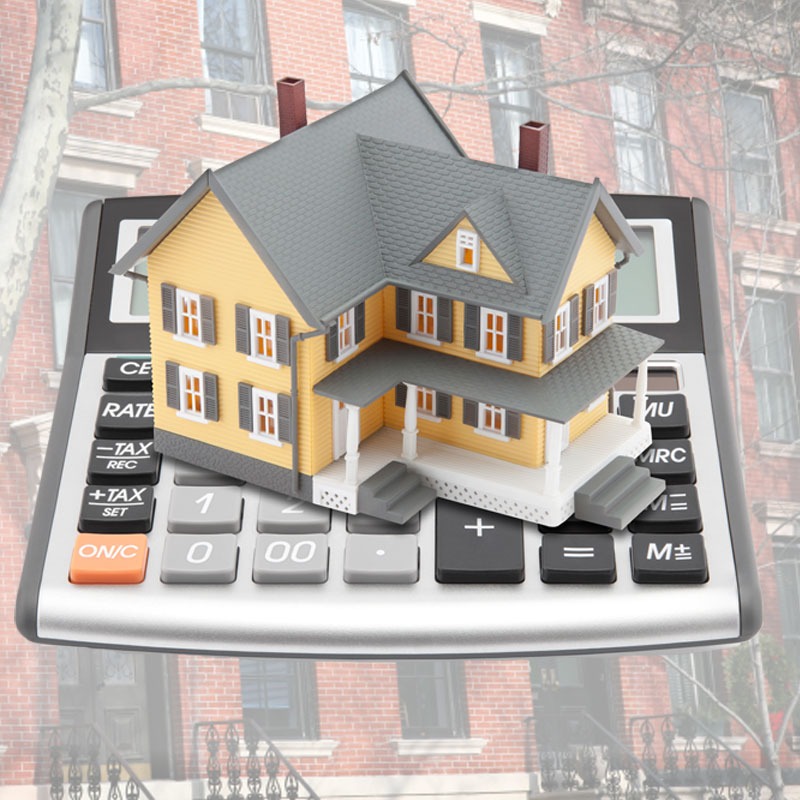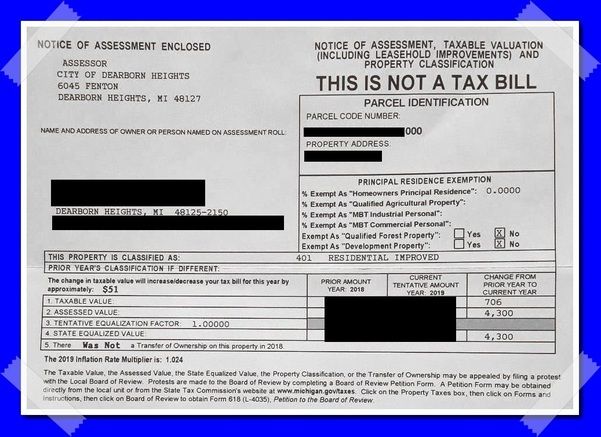By Jumana Judeh
Soon, everyone who owns property in the state of Michigan will receive their Notice of Assessment. Most people ignore this notice and then get surprised when they receive their summer tax bill, which by that time is too late to appeal your taxes. You need to immediately look at the changes in your taxable value and assessed value. If your AV rises, then the assessor in your community has determined your property has increased in value. While this figure is important, the level of taxes you pay on your property is NOT based on the assessed value but rather on your taxable value.
Your assessed value should be at 50 percent of your market value based on Michigan law. Your taxable value, however, is the figure you pay taxes on and includes a mathematical formula as established by state law, which forces an increase no matter what happens in the market. This is why values can go down while taxes go up.
All things being equal, your taxable value this year will rise based on the Inflation Rate Multiplier or 5 percent, whichever is less. For 2020, this multiplier is 1.90 percent, which means, all things being equal, your summer and winter tax bills will show an increase of 1.90 percent. Your 2020 taxes are calculated as follows:
-
2020 Proposed Taxable Value Divided by 1,000 Multiplied by 1.01 which is the municipality administrative fee Multiplied by 1.019 which is the State multiplier Multiplied by your Millage Rate* = Your total estimated tax liability for 2020
*You can call your assessor to obtain your millage rate.
The above is an over-simplification, however, it does provide an initial understanding of one’s tax level.
All residential properties are required by law to appeal first to their March Board of Review. This window opens and closes very quickly so you have to act as soon as you receive your Notice of Assessment. Read the fine print and understand your rights. If you miss this window, then you have to wait until next year to appeal your taxes. You cannot go back in time to appeal your taxes.
If your property is not residential, then you can skip the March Board and appeal directly to the Michigan Tax Tribunal. That deadline is May 31. Given the extremely limited time allotted to property owners when they appear in front of the March Board, it is highly recommended that non-residential properties be appealed directly to the Michigan Tax Tribunal. These properties are extremely complicated and can take a long time to explain in an appeal, a time that is not provided for by the March Board of Appeal.
Other than rising by the multiplier, your taxable value should only change if there has been construction or demolition on your property. If you removed something from your property that was still in relatively good condition but need the space, your taxable value should come down; Conversely, if you added something to your property like a pool or garage, your taxable value will increase. However, your taxable value should not change based on regular maintenance of your home such as replacing your roof or windows or upgrading your kitchen or your bathroom.
If you purchased a home and completely gutted the house for a repurpose into a different design and built an addition, you probably quality for exemptions under the Mathieu Gast Act of 1976; however, this law is extensive and staying within its parameters may be tricky. In other words, consult with a tax appeal professional.
Finally, remember that for 2020, your property is being valued as it existed on Tax Day which is December 31, 2019. So, if your property was under construction but the construction was not complete and the property cannot support occupancy, then you should not be taxed at 100 percent of value.
Jumana Judeh is a certified general appraiser at Judeh & Associates






Leave a Reply